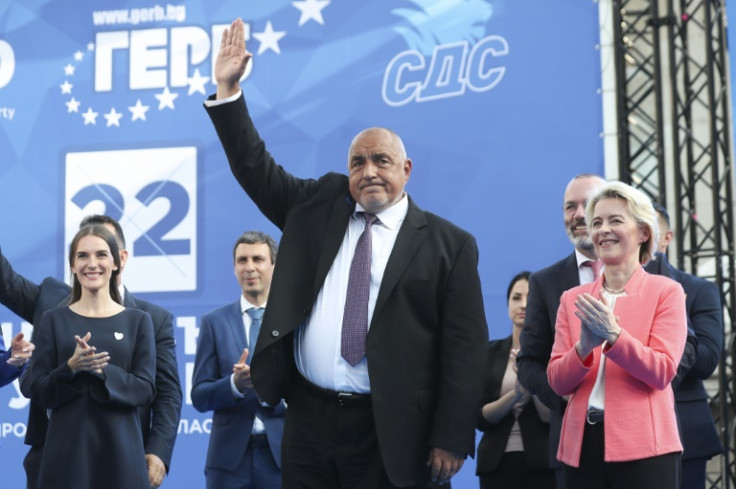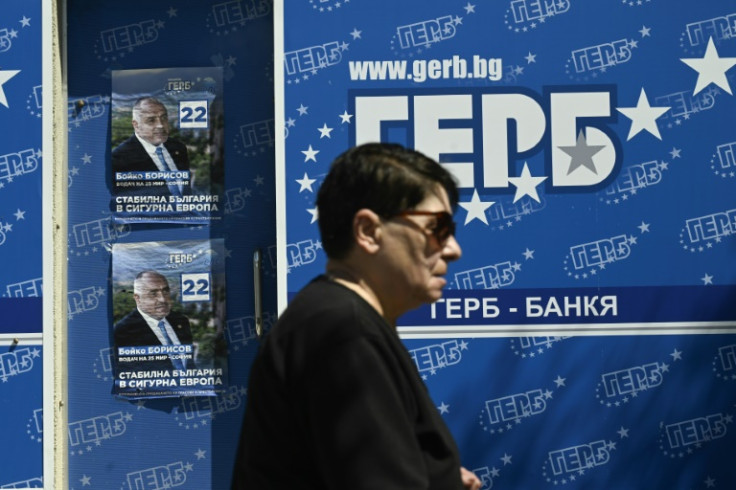Bulgaria's Sixth Vote In Three Years Set To Quash Hopes For Change

Bulgarians head to the polls on Sunday for a sixth time in three years, with hopes for change expected to be quashed in the Balkan country.
As support for a reformist coalition has plunged, former prime minister Boyko Borisov's conservative GERB party looks set to emerge strengthened as the major political player in the EU's poorest member.
After massive anti-corruption protests in 2020 brought down Borisov following close to a decade in power, GERB is however expected to continue to struggle to find partners to govern, with analysts seeing high chances for yet another snap election in the autumn.
Amid the worst instability since the end of communism, reforms necessary to unlock EU funding and integrate fully into the Schengen area of free movement could be delayed further, according to Mario Bikarski, senior Eastern and Central Europe analyst at risk intelligence company Verisk Maplecroft.
The vote is being held alongside EU elections, where similar results are anticipated with reformists having lost significant ground.
Polling stations on Sunday open at 7:00 am (0400 GMT) and close at 8:00 pm with low turnout expected amid voter apathy.
"Elections? When are they again?" asked dentist Stefan Dinev, 39. "I have always voted but I'm at the end of my patience."
Eve-of-ballot opinion polls show GERB well ahead, with about 25 percent of the vote.
"The state is plunged into chaos... Bulgaria has never been so unstable, nor Europe so insecure," Borisov, 64, said at a rally in Sofia, referring to the war in Ukraine.
Voters are expected to punish Borisov's partners in the outgoing government, the liberal reformist PP-DB, for having agreed to work with GERB after accusing Borisov's past governments of corruption.
The two former rivals agreed to govern on a common pro-EU platform of ensuring Bulgaria -- traditionally close to Russia -- supports Kyiv's fight against Moscow's invasion.
But the fragile partnership tumbled in April after just nine months in power after the parties failed to agree on key judiciary and other reforms.
PP-DB are now tipped to garner about 15 percent of the votes, 10 percentage points less than their result in April last year.
According to a recent study by the Open Society Institute, 49 percent of Bulgarians questioned prefer "a strong leader" -- an image former firefighter and bodyguard Borisov has long sought to portray, even though he himself does not plan to be premier for one more term.
A partner for GERB could be the Turkish minority MRF party, which also has support of around 15 percent, according to the latest polls.
MRF leader Delyan Peevski, a 43-year-old lawmaker and former businessman who is sanctioned by the United States and Britain for corruption, has said during the campaign that he was "ready to govern".
But analysts believe having the party formally in the cabinet risks provoking protests and could tarnish the country's image.
On the other hand, a tacit behind-the-scenes partnership between GERB and MRF already dates back years, according to analysts.
Pro-Russian nationalists Vazrazhdane are also polling at 15 percent with Russian propaganda and disinformation playing a large part in the vote.
A survey by the Sofia-based think-tank Center for the Study of Democracy found that close to 40 percent of the Bulgarians share disinformation and almost 70 percent believe in conspiracy narratives.


© Copyright AFP 2024. All rights reserved.



















